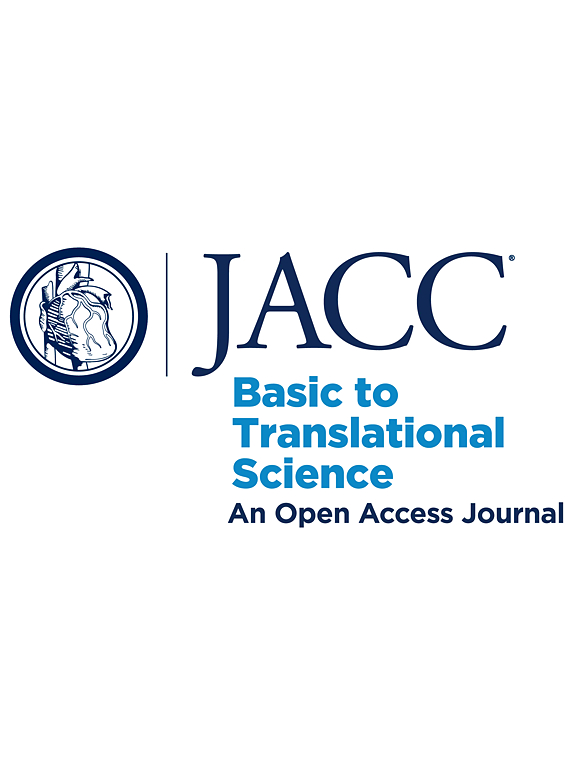牙周炎加速小鼠心力衰竭进展并保留射血分数。
IF 8.4
1区 医学
Q1 CARDIAC & CARDIOVASCULAR SYSTEMS
引用次数: 0
摘要
慢性低度炎症和一氧化氮(NO)耗竭是具有保留射血分数(HFpEF)病理生理的心力衰竭的重要因素。牙周炎(PD)是一种常见的炎性疾病,涉及一氧化氮止血失调。流行病学研究表明PD与心血管疾病(包括心力衰竭)风险增加之间存在关联。然而,这两种疾病之间的因果关系尚未得到证实。在这项研究中,我们试图在小鼠模型中研究PD诱导对HFpEF进展的直接影响。HFpEF小鼠PD诱导导致口腔微生物明显失调,超声心动图显示舒张功能障碍进展加快,心肌炎症和纤维化增加。PD的这些有害影响被证明是由全身血压升高、全身炎症增加和NO消耗介导的。我们的研究提供了PD与HFpEF进展之间潜在的机制联系的证据,并建议PD作为HFpEF的新治疗靶点。本文章由计算机程序翻译,如有差异,请以英文原文为准。
Periodontitis Accelerates Progression of Heart Failure With Preserved Ejection Fraction in Mice
Chronic low-grade inflammation and nitric oxide (NO) depletion are important contributors to heart failure with preserved ejection fraction (HFpEF) pathophysiology. Periodontitis (PD) is a common inflammatory disease implicated in dysregulation of NO hemostasis. Epidemiological studies have shown an association between PD and increased risk of cardiovascular disease, including heart failure. However, a causative relationship between the 2 diseases has not yet been proven. In this study, we sought to investigate the direct effect of PD induction on HFpEF progression in a mouse model. Induction of PD in HFpEF mice resulted in significant oral microbial dysbiosis, accelerated progression of diastolic dysfunction by echocardiography, and increased myocardial inflammation and fibrosis. These deleterious effects seen with PD were shown to be mediated by increased systemic blood pressure, increased systemic inflammation, and NO depletion. Our study provides evidence of potential mechanistic links between PD and HFpEF progression and suggests PD as a new therapeutic target for HFpEF.
求助全文
通过发布文献求助,成功后即可免费获取论文全文。
去求助
来源期刊

JACC: Basic to Translational Science
CARDIAC & CARDIOVASCULAR SYSTEMS-
CiteScore
14.20
自引率
1.00%
发文量
161
审稿时长
16 weeks
期刊介绍:
JACC: Basic to Translational Science is an open access journal that is part of the renowned Journal of the American College of Cardiology (JACC). It focuses on advancing the field of Translational Cardiovascular Medicine and aims to accelerate the translation of new scientific discoveries into therapies that improve outcomes for patients with or at risk for Cardiovascular Disease. The journal covers thematic areas such as pre-clinical research, clinical trials, personalized medicine, novel drugs, devices, and biologics, proteomics, genomics, and metabolomics, as well as early phase clinical trial methodology.
 求助内容:
求助内容: 应助结果提醒方式:
应助结果提醒方式:


